The plan was simple: to create an org that involved kids and music—and maybe change the world.
Around two years ago, Madeline Ong (III BS HSc) and Krissa Santos (III BS HSc) were freshmen going through the daily Ateneo grind. While they slowly found their academic and social niches, there was one thing missing: extra-curricular involvement.
There were many student organizations under the Council of Organizations of the Ateneo (COA), but they couldn’t find one that married their two biggest interests: kids and music. “When I thought of the idea, it seemed so crazy,” shares Ong, “but I couldn’t get it out of my head; I couldn’t sleep. The next day, I went to Krissa and she was like, ‘Sige lang, do it!’”
And so Musikero, an organization that teaches underprivileged children music, was born.
Going Miyagi
Though it has remained unaccredited to this day, Musikero has area insertions every Saturday. By their own means of transport, Musikero visits children in the care of various non-government organizations to share the gift of music.
It isn’t, however, your typical one-on-one music lesson with teacher and student both clutching guitars, strumming the same note, stopping for some occasional finger-rearranging on the fret board. Instead, Musikero integrated the Kodaly method into their curriculum.
Pronounced Koh-day, the method uses games and experiential activities to give students the skills needed to play instruments later on. Taught to Musikero by Ateneo grade school music teacher Mrs. Daisy Marasigan, this Mr. Miyagi-like approach teaches kids music without their realizing that they are, in fact, learning.
RC Marcelo (III BS HSc), the current president of Musikero, shares an exercise to teach kids how to recognize pitches. “We asked them, ‘What sound does an airplane make as it flies up into the air?’ And all the kids go, ‘FUZOOM!’ That’s the high pitch. And then when we say, ‘How about when the airplane is going down?’ Then they’ll give a deeper ‘Fushoooooooom!’ That’s the low pitch.”
This method has turned out to be a perfect fit for the small but growing organization, letting them teach at a ratio of one Musikero to ten students without the need to procure instruments for each one. “The kids follow beats and rhythms, and use their hands and feet. It’s actually more fun,” shares Santos.
Facing the music
While the lessons themselves are fun for the kids, Musikero has had its share of challenges behind the scenes. Most of the instruments in Musikero’s arsenal are hand-me-downs, which doesn’t cut it for instruments like the guitar and violin. “It’s hard to handle an instrument that doesn’t fit you,” adds Santos. “Some of our kids have a hard time playing guitar because their fingers can’t reach the chords.”
This is where Musikero’s on-campus presence kicks in. They regularly hold open mic nights and coin drives in Ateneo to raise org funds so they can continue developing curriculums for the various skill levels they instruct.
Musikero currently caters to seven to twelve-year-old children; while most come from a non-government organization, all kids are welcome. “Last year, we were teaching the orphans at Gentle Hands, but there were kids there outside [that] range, too,” says Santos. “As long as they’re there, they can join us.”
Musikero members are also confronted by the harsh reality of their pupils’ background. This year, Musikero is teaching two areas: Tulay ng Kabataan on Kalayaan Avenue in Quezon City, which takes care of street children; and Manila Boys’ Town in Marikina, a haven for abandoned and voluntarily surrendered children, teenagers and senior citizens.
The theme, as Marcelo puts it, is “children without families [or those with] families that are not exactly family.” Some of the kids come from troubled or abusive backgrounds—families that didn’t deserve to be called as such.
For these kids, a little goes a long way—Musikero’s bigger goal has always been to improve the lives of the children they teach. Thus, Musikero tracks the kids’ progress through a system which involves not just a checklist of skills learned, but also observations the teachers have about changes in their students’ personality.
Easing goodbyes
The impact of Musikero goes beyond acquiring a new set of skills. Dr. Boboy Alianan, PhD from the Psychology department puts Musikero’s work in the context of art therapy: although Musikero leans more toward education than therapy, the presence of music has added a unique dimension.
There are two ways to think about it: that art in itself is a means to achieve therapeutic goals and that there are resulting therapeutic effects of the art created.
Musikero has done the latter. The caretakers at Gentle Hands share that when children leave the agency upon adoption, the shy kids use music as a way to open up and let people in.
“Giving the opportunity to children who would normally not have the opportunity to learn these things, given the methods that they are using—it is very encouraging, very empowering,” says Dr. Alianan. “That should have its own benefits; and because it is an art activity, it has inherent benefits already. You’re offering them a mode of expression, a mode of dealing with their situation.”
One caretaker said it best: “You don’t realize how much you give them because these kids, they move a lot to different areas, the only thing they know are goodbyes. There is nothing constant in their lives. But if you teach them music, they have something to bring with them wherever they go.”
Eternal flame
It would be typical to say that the only direction for Musikero to go now is forward. But Musikero dreams of going in every possible direction, to wherever it is needed.
“More areas! More members! Become an NGO!” The Musikeros chime in with all the things their plans for the future—none of which include COA accreditation, mind you. After the hubbub simmers down, Santos puts it plainly: “Actually, anything that’s better for the kids.”
Have an org that involved kids and music, check. Change the world, check.
- Photo by Aih Mendoza
- Photo by Aih Mendoza
- Photos by Aih Mendoza

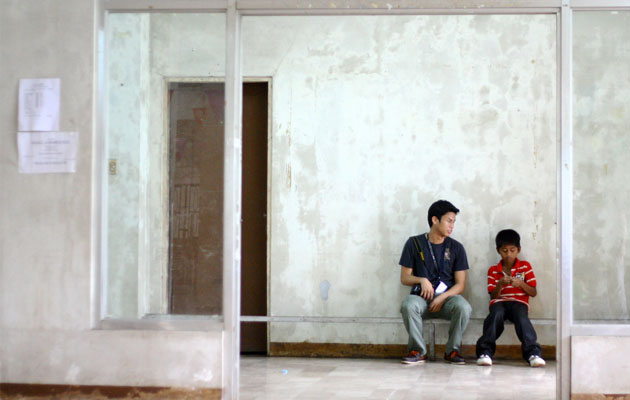
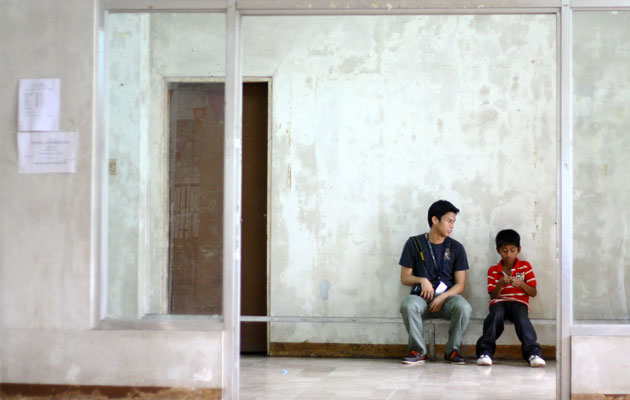
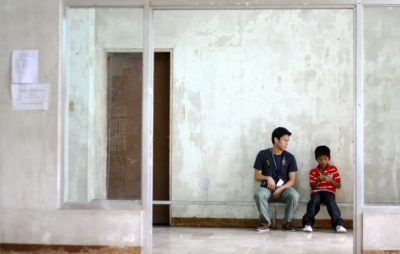
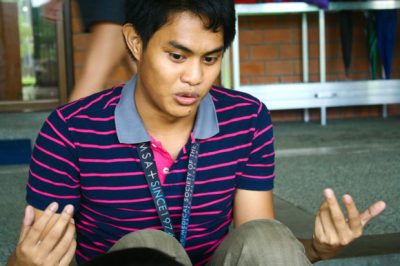
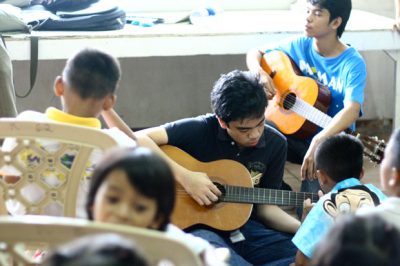
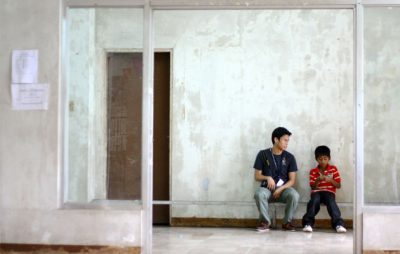
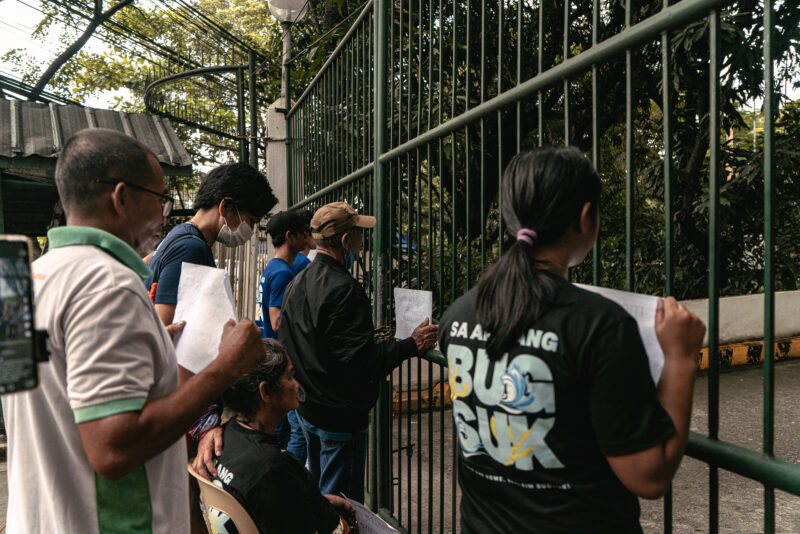
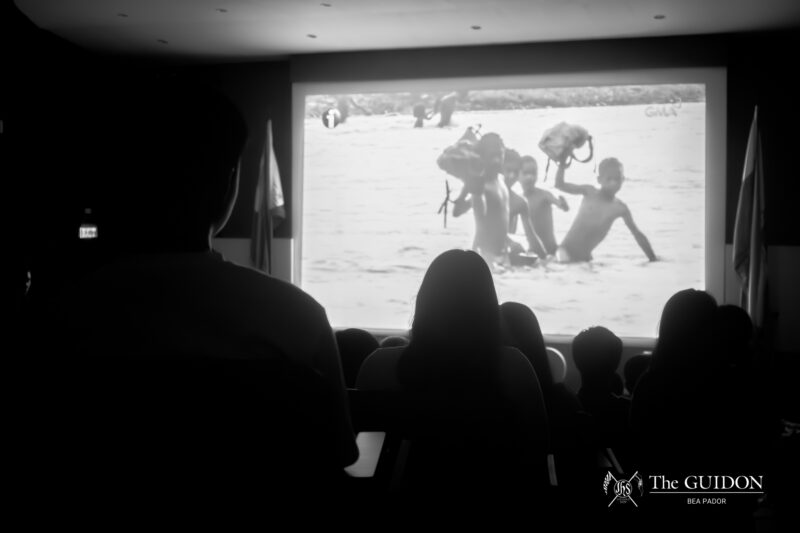
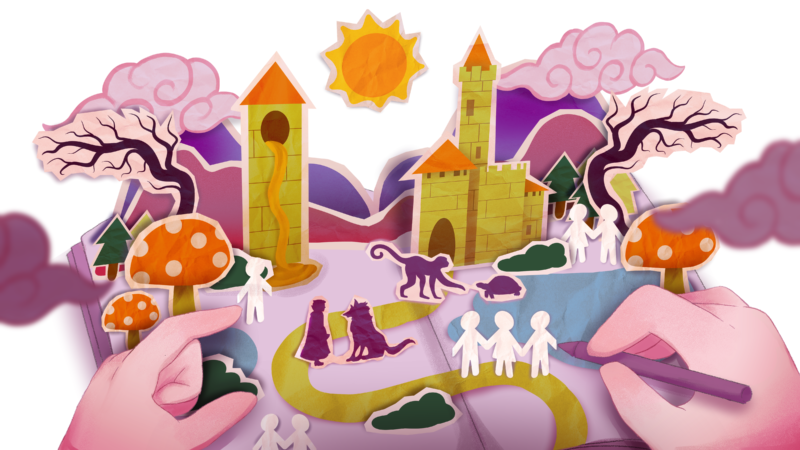
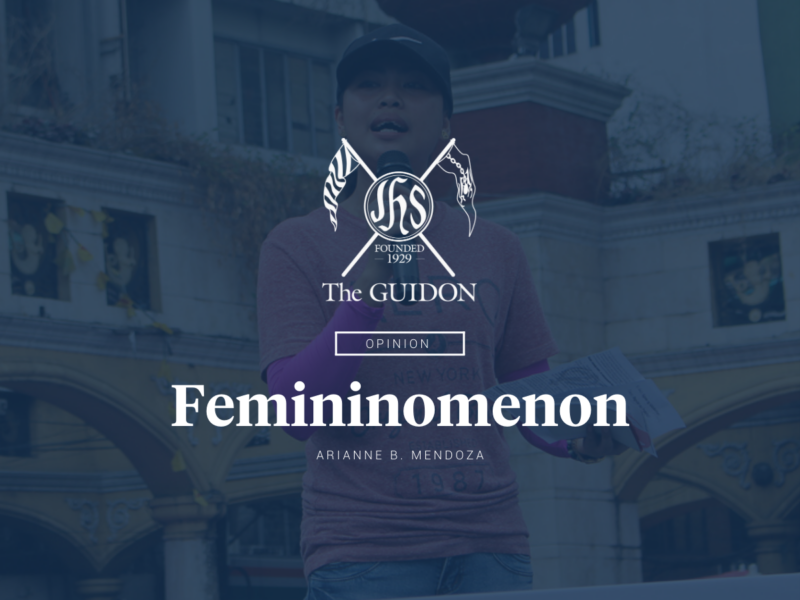


[…] posted by The Guidon Categories : Featured | Tags : campus journalism, campus paper, kids and […]